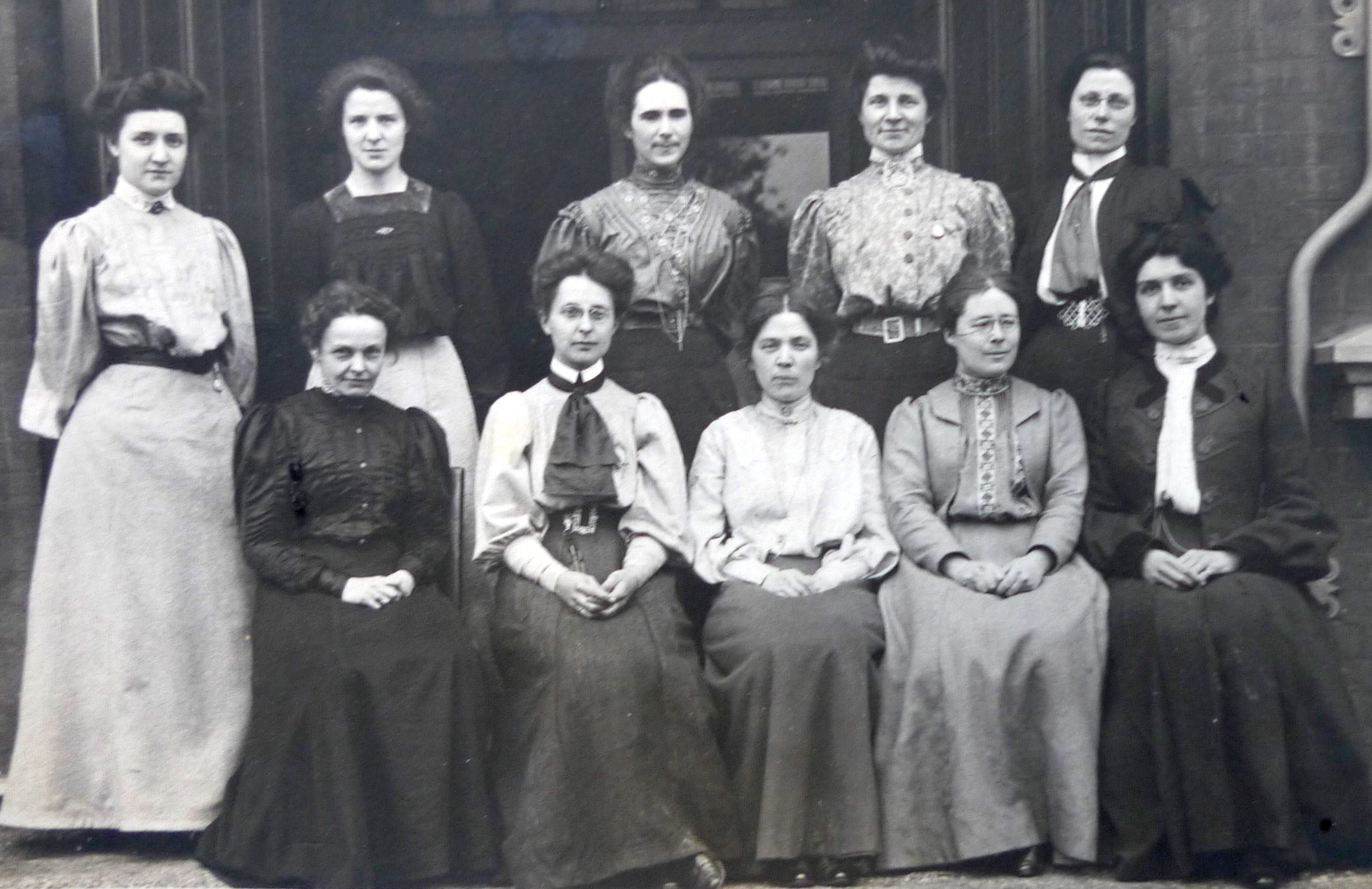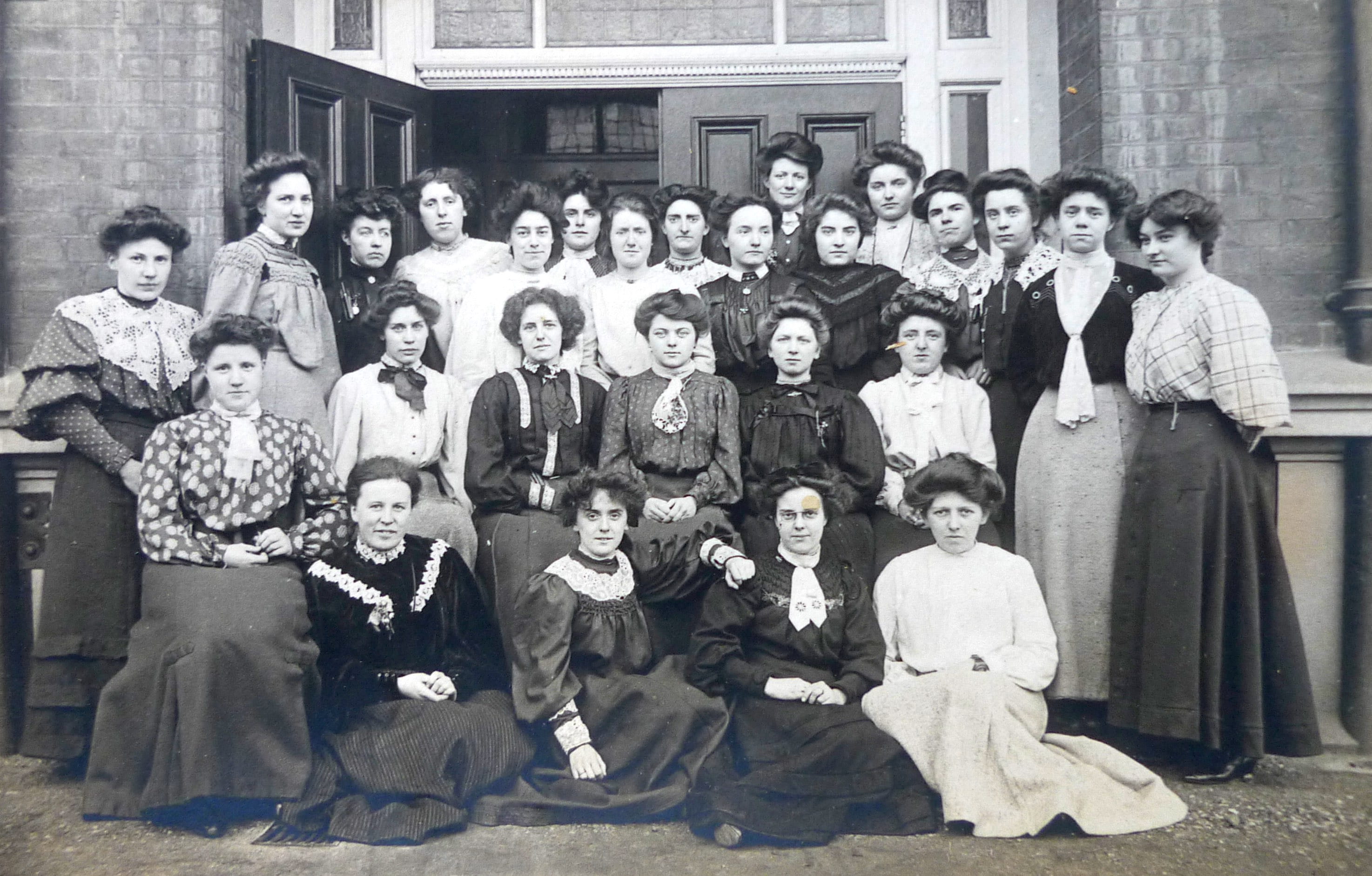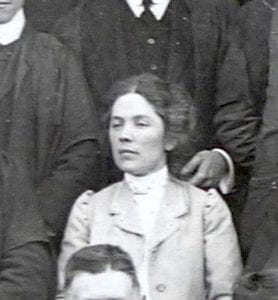
Caroline C. Graveson, first Woman’s Vice Principal of Goldsmiths’ College, University of London on her appointment in 1905 with the women staff. Centre front row. The picture was taken at the entrance to the women’s corridor on the east side of the building
Caroline Graveson’s appointment as women’s Vice Principal of Goldsmiths’ College in 1905 received national newspaper exultation.
The Daily Telegraph and London Evening Standard said ‘it was one of the most valuable and important among those now open to women.’

Some of Caroline Graveson’s first women teacher training students in 1905-6.
She remained one of the most important women in British Higher Education during the Edwardian period, through the First World War and continuing through the 1920s and 30s until her retirement at the end of 1934.

A typically distracted pose of Caroline Graveson in group photographs
During the Great War, Goldsmiths became virtually an all-woman’s place with most men students and staff joining the armed forces. By 1916 the roll call of students was 268 women to 20 men.
It was a pioneering training college centre for educating teachers because it was the first to be co-educational and non-denominational. This meant it could admit students with non-Christian backgrounds such as Jews and Muslims, and it partnered with the prestigious Art School and thriving adult evening educational programme started by the Goldsmiths Company’s Technical and Recreative Institute in 1891. It was also run by the University of London- the most important and influential university in Great Britain outside Oxford and Cambridge.
Caroline was one of the first women members of the British Psychological Society- a reflection of the College’s commitment to researching and teaching educational psychology.
She spoke fluent German because she had been a student at German universities for 2 years between 1896-98.